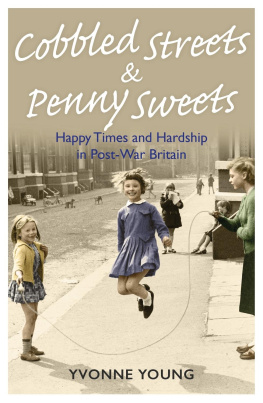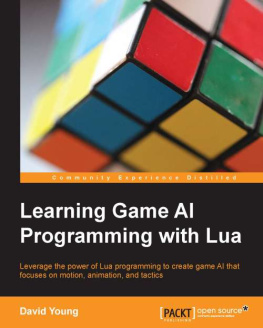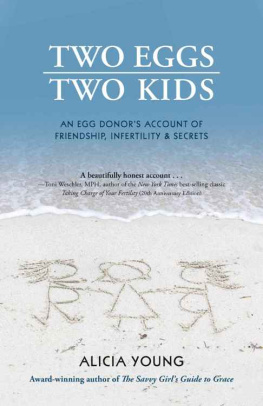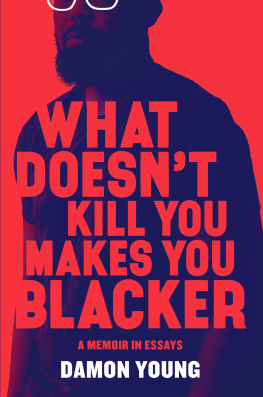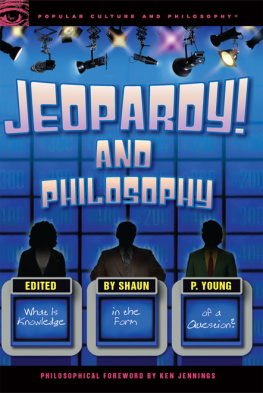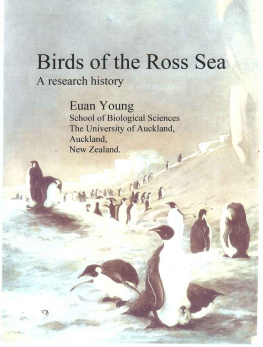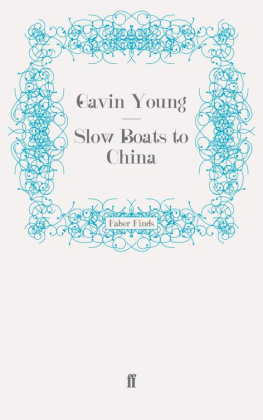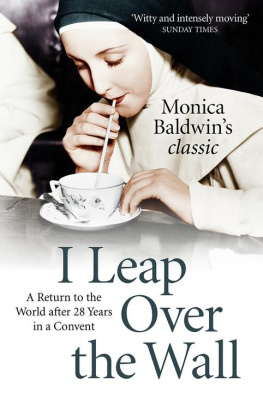W hen your parents collect things from the past in an old cardboard box, they have no idea that, in time, you will piece their story together. The receipt for Mams wedding ring, purchased at The Northern Goldsmiths, 85 & 87 Westgate Road, Newcastle upon Tyne, price 3.00, The Ring Shop For The World dated 29 September 1951 (I was born on 24 February 1952).
When I was around five years old I looked at a photo of my parents in their wedding gear.
Where was I?
You werent here yet.
Whatever did they mean, how could they be somewhere without me? This was disgraceful. If I wasnt there yet, well, where was I? Questions they couldnt answer, but I was there alright. I never understood why being a single mother was frowned upon, but a couple, like my parents, who had married while the bride was pregnant was acceptable. Both these women were up the stick, the local term, yet the veneer of respectability was what mattered to the community.
Mam and Dad moved in with Nana, Dads mother, at 17 Maria Street, one of the dozens of back-to-backs which steeply sloped down towards Scotswood Road. Five doors up from Vickers Armstrongs garage and just behind their armament factories. The men in the garage were forever running out to chase kids for throwing stones onto the corrugated steel roof. During World War II, when women were employed to take on the work of men called away, everything was covered in dust and folks had to hold down the china when a tank was on the loose, up one of the streets on a test run. The bombs were filled with explosives, which the women were responsible for putting inside, and this turned their hair and skin yellow. They were nicknamed Canary Girls. It was a very dangerous job as they fixed the caps down on the bombs and there was always a chance the bombs could go off. The yellow from handling these explosives wore off eventually but there were tales of pregnant women who gave birth to yellow babies. The effects of colouration of the babies skin wore off after a couple of weeks, but I believe that the workers suffered skin complaints and breathing difficulties because of the work.
After the men returned from active service, most of these women lost their jobs, but there wasnt a great deal of reorganisation as few men were conscripted since the work at Vickers was regarded as being vital to the war effort. It had been a boom time for the company and the shipyards were replacing bombed vessels. There was plenty of work and wages were good, but when nationalisation of shipbuilding and aircraft took place in 1967 over 50 per cent of the company was lost and they were told not to depend on armaments, so work was moved away from Elswick and different ways of working introduced. (They did manufacture tractors for a while, and even one prototype for a dolls pram, but none of their new products reached the phenomenal heights of production during wartime and into the 1950s.)
Nanas place was a downstairs flat opposite a bomb site apparently, the German airmen were aiming for the factories. Vickers had made our area a prime target for the Luftwaffe. In our area alone, almost 400 people were killed by bombs from German planes between 1940 and 1941, as they tried to destroy our tanks, armaments and shipping but hit local homes instead. Even during my childhood in the 1950s, there was still a lot of damage to buildings around the West End of Newcastle. We played among the rubble, looking for bits of old china. Sometimes we came across a blue piece but even more prized was anything with gold on it.
Scotswood Road was famous for its forty-six pubs, most of them built on the corner of another street. It was said that rates were more expensive on the main road so by being built on the corner, publicans could lay claim to their address off-road. So pubs mingled in with the corner shops and fish-and-chip shops.
Music was a feature in our flat as my parents both enjoyed musicals. Dad favoured My Fair Lady and Gigi, while Mam sang songs from South Pacific and Can-Can. I still remember, young as I was, feeling acute embarrassment as I became aware that they were watching me as I flounced around while singing one of those songs. I hid behind a chair and they laughed all the more. But while Mam might have laughed at my attempts to warble, she herself wasnt so keen to perform when anyone else was watching.
The only party I had at home was around the same year: some children from our street were invited with their mothers and we ate egg-and-tomato sandwiches. We had a huge brown earthenware teapot which had a handle above the spout when full, it would have been impossible to hold upright with the regular handle alone. Mam had never actually used it before and put far too much tea in (someone observed that it was like Spanish tea). A game of Ring o Roses was suggested and the mothers joined hands with us kids, but none of them wanted to sing, so it all descended into frustration.
Oh, just play among yourselves. Here, eat some bullets!
A friend of mine, Mary, came to live in the area from Scotland when she was seven years of age. After being at the school for just one week, she came home crying.
Mammy, theres a girl in my class has got a gun.
Have you seen it? her mother asked.
No, but she keeps asking me if I have any bullets.
Bullets was a north-eastern term for sweets in general. The Black Bullet, a popular minty-tasting confection shaped like little balls, probably started this adaptation. There were many children who were bitterly disappointed while waiting for a parent to return from a first day making bullets at Vickers armament factory, only to be informed they were made of metal, not candy.
Derelict houses were a magnet for us kids, no safety fencing or blocked-off entrances. We dared each other to go upstairs and walk around the skirting boards of rooms with massive holes in the middle of the floor and blown bricks staring up at us. An old church on the corner of a street was under compulsory purchase. Huge oak doors hung off their hinges and when we ventured inside, most of the flooring on the far side was caved in. On further inspection, we saw there was a flood of water underneath someone must have been in for the copper piping.
I have no memory of Nana, but Mam said that she had infinite patience with me, putting my bootees on when I kept pulling them off. Every Sunday, she attended St Aidans Church and enjoyed voluntary work. My grandfather Charles died in 1940. He had moved to Newcastle in 1904 from Falmouth, where he had been a mariner, so he slotted right into working on ships at Vickers-Armstrong engineering works.
Many of the pubs on the Scotswood Road were named after machinery or armament from the factories: The Gun, The Hydraulic Crane, The Rifle, The Forge Hammer and The Mechanics, etc. I loved listening to my Uncle Toms stories. He remembered that Grandad rigged a bracket on the wall in the backyard to make nets and tents to sell for extra money. More than likely, the materials were gathered from the workplace. All of the homes in the area were painted grey, dark green or brown battleship colours.
I enjoyed listening to tales of local characters. There was the rat catcher who called in at the pubs, went into the cellars and placed a lantern with a kipper over the top. He hid in the corner until the rat came sniffing, then grabbed it with his bare hands and chucked it in a hessian sack. The charge to the publican was 4d (2p) for a little rat and 6d (3p) for a large one. If the payment wasnt given, the catcher tipped them all out onto the bar counter Here then, have your rats back! Sure enough, this would clear the place.
A neighbour had worked in many jobs but took a job in pest control for a while. Folks went past and said, There goes the rat catcher. Everyone knew him because many people had need of his services in shops, homes and pubs. There were rats in the Co-op, anywhere where there was food. Hundreds of rats ran along the Quayside. A team of eight men laid traps and left them to do their work. Nobody bothered them, people pointed, Theyre in there and then went away. They all said they could never do that job, especially in the cattle market near the river. There was so much blood running among the cobbles, the rats swarmed everywhere. I was shocked when my neighbour told me that sometimes the rats ran up his trouser legs. He had seen bulls being led by herdsmen using sticks to chase them along and joked, At least the bulls didnt run up my trouser leg!

